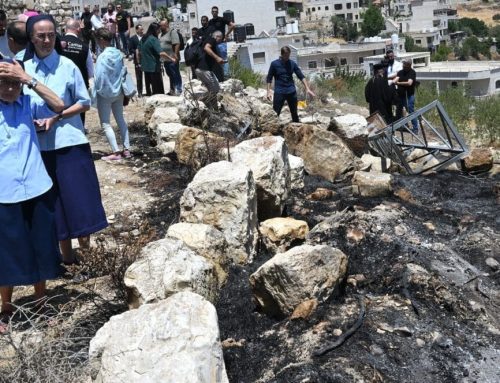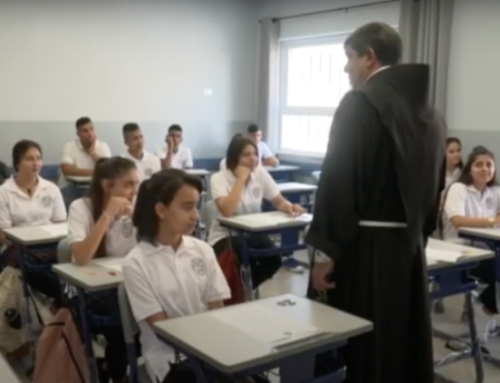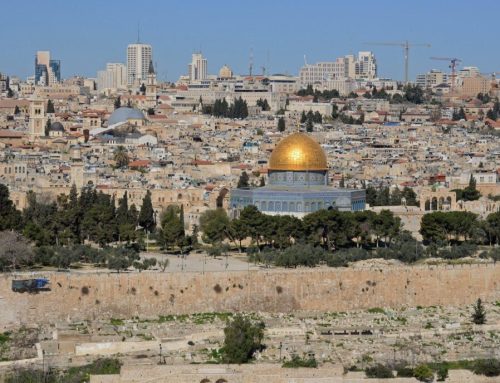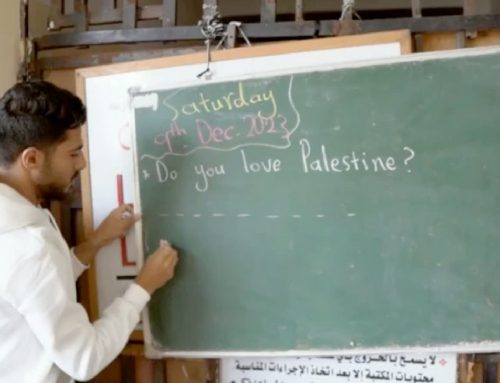How will Christmas 2016 be in the Middle East? Two Christians, one refugee mother in Lebanon and one pastor in Qamishli in northeast Syria, tell how difficult the message of Jesus’ birth becomes in times of war and unrest.
“How will you celebrate Christmas this year?” This simple question makes Maysoon lose her smile. The mother of three had just talked about her daily life in Bourj Hammoud, a suburb of Beirut, where the family is living since their flight to Lebanon two and a half years ago.
In summer 2014 they escaped their hometown Qamishly in northeast Syria after her 12-year-old daughter Solvig was almost kidnapped. On her way home from school, a man on a motorcycle tried to drag her on his vehicle. Neighbors freed her from the hands of this man. But for the family the decision was made. They left everything behind: the house, the garden, the shop, the friends, and went to Lebanon. The family finally found a small flat in Bourj Hammoud, the area given to survivors of the Armenian genocide in 1915.
It’s a poor neighborhood. Maysoon, her husband, the three kids and the grandmother are now living in two rooms in a bad state. The furniture was given by a social organization, and the money the father earns as a private driver is not enough to make the family live. They depend on the charity of others. Nevertheless, Maysoon doesn’t stop smiling while she is telling her story. It’s the smile of a strong person, a woman who doesn’t want to complain. Her eight-year-old son Rami has laid his head on her lap and she caresses his hairs. He has lost his best friend in a bomb attack and still doesn’t understand why this could happen.
And then comes this simple question about Christmas. Maysoon hesitates. Without any smile she says: “Christmas has lost its sense for me. It will be like any other day.” Perhaps she is thinking of the gifts she won’t be able to offer to her children. “For two and a half years, we only eat noodles and lentils. How to celebrate?”, she asks. In Qamishly they had a Christmas tree, gifts for everyone, a good meal and of course the service at church. It was because of their Christian faith that they couldn’t stay any longer in their hometown. It’s a double tragedy that they now find themselves losing their faith.
Rev. Firas Farah is serving in the Presbyterian Church in Qamishly. The few Christians who still live this area are not only afraid of Dschihadist militia. There have also been several clashes with Kurdish groups who try to get the upper hand in this region. Last year, shortly after Christmas, three bombs detonated in three restaurants in a mainly Christian district. Sixteen people were killed, 14 of the victims were Christians. It is still not clear who was behind these attacks. The Kurdish side sees the Islamic State responsible for the blasts. But Assyrian (Christian) organizations claim the bombings were not likely a deed by IS but possibly a crime by Kurdish extremists.
Since his two colleagues in the neighbor towns of Hassakeh and Malkiyeh have left for abroad, Farah also serves in these two churches. “People are still traumatized. At Christmas all will come back to their mind”, he says. “I don’t know what I will preach on Christmas. It’s difficult to preach in such a situation about the child in the manger. Christmas nowadays is not like it was before.”
In Qamishly there are still 65 families who belong to his church. Forty have left. In Hassakeh and Malkiyeh it’s even worse. Only 25 families still belong to the Presbyterian church. Each parish had 80 families before the war.
Some families in his church mourn relatives who died during terrorist attacks. After the bombings in the restaurants on 30 December 2015 there was an ISIS-claimed double bomb attack at end of July 2016 in Qamishli which killed 44 people. “Perhaps I will preach on the child murder in Bethlehem”, he says pensively.
In all families of his congregation, there are persons who think of leaving. “They know that they will lose everything when they go. There will be no return. Shall I better preach on the flight of the Holy family to Egypt?”, he asks. Reverend Farah has also two young children and knows how difficult it is to stay. When he gets to know that one member of his church is thinking of leaving he visits the family, prays with them and tries to convince them to stay. “Syria needs Christian witness”, he says and suddenly he starts smiling. “At Christmas, I will tell the people that Jesus was born in a very dark time and that he wants to be born in our country to console us.”
Source: World Council of Churches






